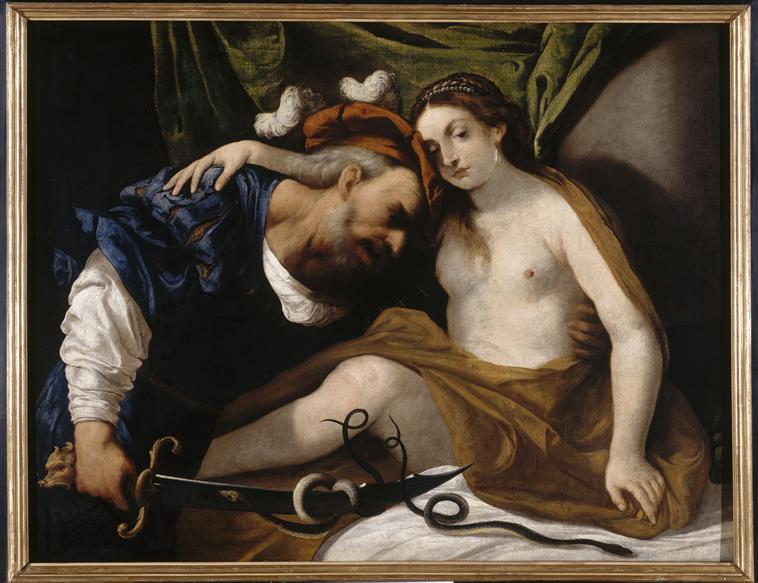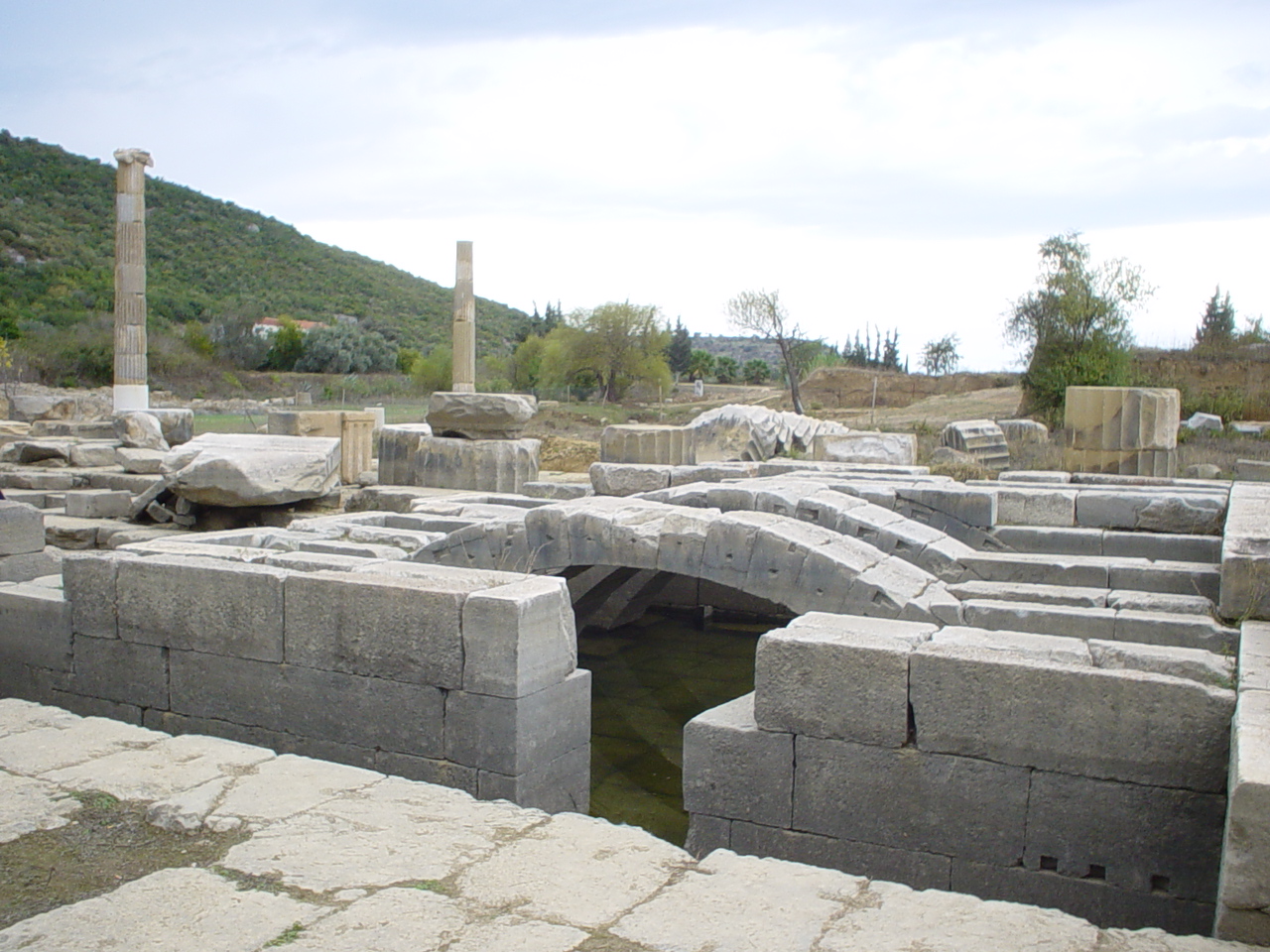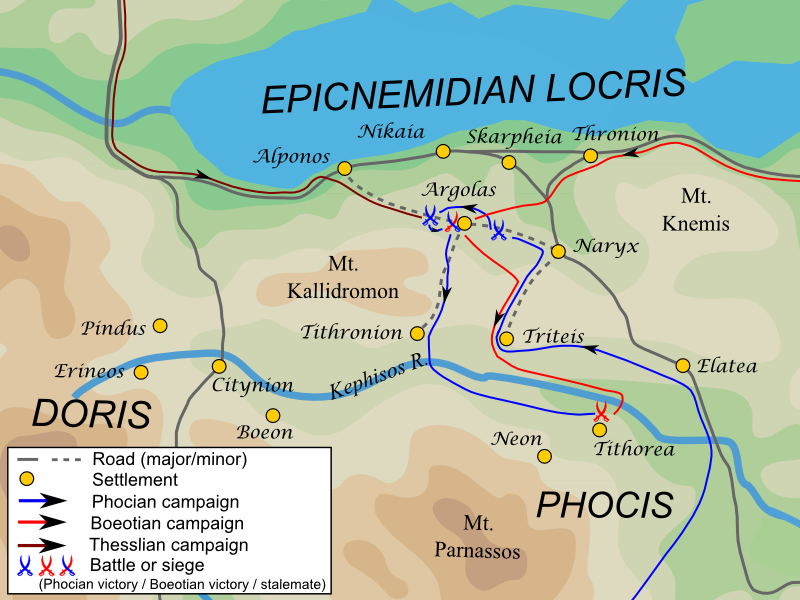|
Greek Divination
Greek divination is the divination practiced by ancient Greek culture as it is known from ancient Greek literature, supplemented by epigraphic and pictorial evidence. Divination is a traditional set of methods of consulting divinity to obtain prophecies (theopropia) about specific circumstances defined beforehand. As it is a form of compelling divinity to reveal its will by the application of method, it is, and has been since classical times, considered a type of magic. Cicero condemns it as superstition. It depends on a presumed "sympathy" (Greek sumpatheia) between the mantic event and the real circumstance, which he denies as contrary to the laws of nature. If there were any sympathy, and the diviner could discover it, then "men may approach very near to the power of gods." The Greek word for a diviner is ''mantis'' (pl. manteis), generally translated as "prophet" or "seer". A mantis is to be distinguished from a hiereus, "priest," or hiereia, "priestess," by the participation ... [...More Info...] [...Related Items...] OR: [Wikipedia] [Google] [Baidu] |
Delphi BW 2017-10-08 11-44-18
Delphi (; ), in legend previously called Pytho (Πυθώ), in ancient times was a sacred precinct that served as the seat of Pythia, the major oracle who was consulted about important decisions throughout the ancient classical world. The oracle had origins in prehistory and it became international in character and also fostered sentiments of Greek nationality, even though the nation of Greece was centuries away from realization. The ancient Greeks considered the centre of the world to be in Delphi, marked by the stone monument known as the omphalos (navel). The sacred precinct of Ge or Gaia was in the region of Phocis, but its management had been taken away from the Phocians, who were trying to extort money from its visitors, and had been placed in the hands of an amphictyony, or committee of persons chosen mainly from Central Greece. According to the Suda, Delphi took its name from the Delphyne, the she-serpent ('' drakaina'') who lived there and was killed by the god Apoll ... [...More Info...] [...Related Items...] OR: [Wikipedia] [Google] [Baidu] |
Kalapodi
Kalapodi ( el, Καλαπόδι) is a modern Greek village in the Lokroi municipality, Phthiotis, Central Greece. Lokroi straddles the pass leading over the low mountains between the Bay of Atalantis in the Gulf of Euboea to the plains of Boeotia north of Lake Copais. The road is often termed the Atalanti-Livadeia. The community of Atalanti, the chief deme of Lokroi, overlooks the Bay of Atalantis, while Livadeia is the current capital of Voiotia. Geography Kalapodi is situated on the flank of the pass at the top in rolling upland. Mount Parnassus is visible to the southeast. On the west is Karagkiozis-Asprogies Wildlife Refuge, and on the west at a further distance Svarnias Wildlife Refuge, both mountainous. A subsidiary road connects Zeli, a mountain village, part of Kalapodi, on the north. The pass is sometimes called in English "the Valley of Kalapodi." On the east, just before the village, it branches to another pass, "the Valley of Exarchos," named after the municipality o ... [...More Info...] [...Related Items...] OR: [Wikipedia] [Google] [Baidu] |
Manto (mythology)
There are several figures in Greek mythology named Manto (Ancient Greek: Μαντώ), the most prominent being the daughter of Tiresias. The name ''Manto'' derives from Ancient Greek ''Mantis'', "seer, prophet". * Manto, daughter of Tiresias. * Manto, daughter of Heracles. According to Servius (comm. on Virgil, ''Aeneid'' X, 199), some held that this was the Manto for whom Mantua was named. * Manto, daughter of the seer Polyidus. She and her sister Astycrateia were brought to Megara by their father, who came there to cleanse Alcathous for the murder of his son Callipolis. The tomb of the two sisters was shown at Megara in later times. * Manto, daughter of another famous seer, Melampus. Her mother was Iphianeira, daughter of Megapenthes, and her siblings were Antiphates, Bias and Pronoe.Diodorus Siculus, 4.68.5 * Manto is remembered in ''De Mulieribus Claris'', a collection of biographies of historical and mythological women by the Florentine author Giovanni Boccaccio, composed in ... [...More Info...] [...Related Items...] OR: [Wikipedia] [Google] [Baidu] |
Tiresius
In Greek mythology, Tiresias (; grc, Τειρεσίας, Teiresías) was a blind prophet of Apollo in Thebes, famous for clairvoyance and for being transformed into a woman for seven years. He was the son of the shepherd Everes and the nymph Chariclo. Tiresias participated fully in seven generations in Thebes, beginning as advisor to Cadmus himself. Mythology Eighteen allusions to mythic Tiresias, noted by Luc Brisson, fall into three groups: the first recounts Tiresias' sex-change episode and later his encounter with Zeus and Hera; the second group recounts his blinding by Athena; the third, all but lost, seems to have recounted the misadventures of Tiresias. Blindness and gift of prophecy Like other oracles, how Tiresias obtained his information varied: sometimes, he would receive visions; other times he would listen for the songs of birds, or ask for a description of visions and pictures appearing within the smoke of burnt offerings or entrails, and so interpret th ... [...More Info...] [...Related Items...] OR: [Wikipedia] [Google] [Baidu] |
Epigoni
In Greek mythology, the Epigoni or Epigonoi (; from grc-gre, Ἐπίγονοι, meaning "offspring") are the sons of the Argive heroes, the Seven against Thebes, who had fought and been killed in the first Theban war, the subject of the ''Thebaid'', in which Polynices and his allies attacked Thebes because Polynices' brother, Eteocles, refused to give up the throne as promised. The second Theban war, also called the war of the Epigoni, occurred ten years later, when the Epigoni, wishing to avenge the death of their fathers, attacked Thebes. List of Epigoni According to the mythographer Apollodorus, they were: * Aegialeus, son of Adrastus * Alcmaeon, son of Amphiaraus * Amphilochus, son of Amphiaraus * Diomedes, son of Tydeus * Euryalus, son of Mecisteus * Promachus, son of Parthenopaeus * Sthenelus, son of Capaneus *Thersander, son of Polynices To this list, the geographer Pausanias also adds: * Polydorus, son of Hippomedon * Adrastus and Timeas, sons of Polynices H ... [...More Info...] [...Related Items...] OR: [Wikipedia] [Google] [Baidu] |
Klaros 008
Claros (; el, Κλάρος, ''Klaros''; la, Clarus) was an ancient Greek sanctuary on the coast of Ionia. It contained a temple and oracle of Apollo, honored here as Apollo Clarius. It was located in the territory of Colophon, which lay twelve kilometers to the north, one of the twelve cities of the Ionian League. The coastal city Notion lay two kilometers to the south. The ruins of the sanctuary are now found north of the modern town Ahmetbeyli in the Menderes district of Izmir Province, Turkey. The Temple of Apollo at Claros was a very important center of prophecy, as in Delphi and Didyma. The oldest literary information about this sacred site goes back to the sixth and seventh centuries BC, through the Homeric Hymns, though Proto-Geometric pottery at the site betokens 9th century occupation. A sacred cave near the Temple of Apollo, which was an important place both in the Hellenistic and Roman eras, points to the existence of a Cybele cult in early periods here. Games cal ... [...More Info...] [...Related Items...] OR: [Wikipedia] [Google] [Baidu] |
Anatolia
Anatolia, tr, Anadolu Yarımadası), and the Anatolian plateau, also known as Asia Minor, is a large peninsula in Western Asia and the westernmost protrusion of the Asian continent. It constitutes the major part of modern-day Turkey. The region is bounded by the Turkish Straits to the northwest, the Black Sea to the north, the Armenian Highlands to the east, the Mediterranean Sea to the south, and the Aegean Sea to the west. The Sea of Marmara forms a connection between the Black and Aegean seas through the Bosporus and Dardanelles straits and separates Anatolia from Thrace on the Balkan peninsula of Southeast Europe. The eastern border of Anatolia has been held to be a line between the Gulf of Alexandretta and the Black Sea, bounded by the Armenian Highlands to the east and Mesopotamia to the southeast. By this definition Anatolia comprises approximately the western two-thirds of the Asian part of Turkey. Today, Anatolia is sometimes considered to be synonymous with Asian ... [...More Info...] [...Related Items...] OR: [Wikipedia] [Google] [Baidu] |
Colophon (city)
Colophon (; grc, , }) was an ancient city in Ionia. Founded around the turn of the 1st millennium BC, it was likely one of the oldest of the twelve cities of the Ionian League. It was located between Lebedos (120 stadia to the west) and Ephesus (70 stadia to its south). Its ruins are south of the town Değirmendere in the Menderes district of Izmir Province, Turkey. The city's name comes from the word κολοφών, "summit", (which is also the origin of the bibliographic term " colophon", in the metaphorical sense of a 'crowning touch',) as it was sited along a ridgeline. The term ''colophony'' for rosin comes from the term ''colophonia resina'' ( grc, Κολοφωνία ῥητίνη ''Kolophōnia rhētinē''), resin from the pine trees of Colophon, which was highly valued for increasing friction of the bow hairs of stringed musical instruments. History According to Apollodorus and Proclus, the mythical seer Calchas died at Colophon after the end of the Trojan Wa ... [...More Info...] [...Related Items...] OR: [Wikipedia] [Google] [Baidu] |
Claros
Claros (; el, Κλάρος, ''Klaros''; la, Clarus) was an ancient Greek sanctuary on the coast of Ionia. It contained a temple and oracle of Apollo, honored here as Apollo Clarius. It was located in the territory of Colophon, which lay twelve kilometers to the north, one of the twelve cities of the Ionian League. The coastal city Notion lay two kilometers to the south. The ruins of the sanctuary are now found north of the modern town Ahmetbeyli in the Menderes district of Izmir Province, Turkey. The Temple of Apollo at Claros was a very important center of prophecy, as in Delphi and Didyma. The oldest literary information about this sacred site goes back to the sixth and seventh centuries BC, through the Homeric Hymns, though Proto-Geometric pottery at the site betokens 9th century occupation. A sacred cave near the Temple of Apollo, which was an important place both in the Hellenistic and Roman eras, points to the existence of a Cybele cult in early periods here. Games cal ... [...More Info...] [...Related Items...] OR: [Wikipedia] [Google] [Baidu] |
Trajan
Trajan ( ; la, Caesar Nerva Traianus; 18 September 539/11 August 117) was Roman emperor from 98 to 117. Officially declared ''optimus princeps'' ("best ruler") by the senate, Trajan is remembered as a successful soldier-emperor who presided over one of the greatest military expansions in Roman history and led the empire to attain its greatest territorial extent by the time of his death. He is also known for his philanthropic rule, overseeing extensive public building programs and implementing social welfare policies, which earned him his enduring reputation as the second of the Five Good Emperors who presided over an era of peace within the Empire and prosperity in the Mediterranean world. Trajan was born in Italica, close to modern Seville in present-day Spain, a small Roman ''municipium'' founded by Italic settlers in the province of Hispania Baetica. He came from a branch of the gens Ulpia, the ''Ulpi Traiani'', that originated in the Umbrian town of Tuder. ... [...More Info...] [...Related Items...] OR: [Wikipedia] [Google] [Baidu] |
Third Sacred War
The Third Sacred War (356–346 BC) was fought between the forces of the Delphic Amphictyonic League, principally represented by Thebes, and latterly by Philip II of Macedon, and the Phocians. The war was caused by a large fine imposed in 357 BC on the Phocians by the Amphictyonic League (dominated at that moment by Thebes), for the offense of cultivating sacred land; refusing to pay, the Phocians instead seized the Temple of Apollo in Delphi, and used the accumulated treasures to fund large mercenary armies. Thus, although the Phocians suffered several major defeats, they were able to continue the war for many years, until eventually all parties were nearing exhaustion. Philip II used the distraction of the other states to increase his power in northern Greece, in the process becoming ruler of Thessaly. In the end, Philip's growing power, and the exhaustion of the other states, allowed him to impose a peaceful settlement of the war, marking a major step in the rise of Maced ... [...More Info...] [...Related Items...] OR: [Wikipedia] [Google] [Baidu] |







